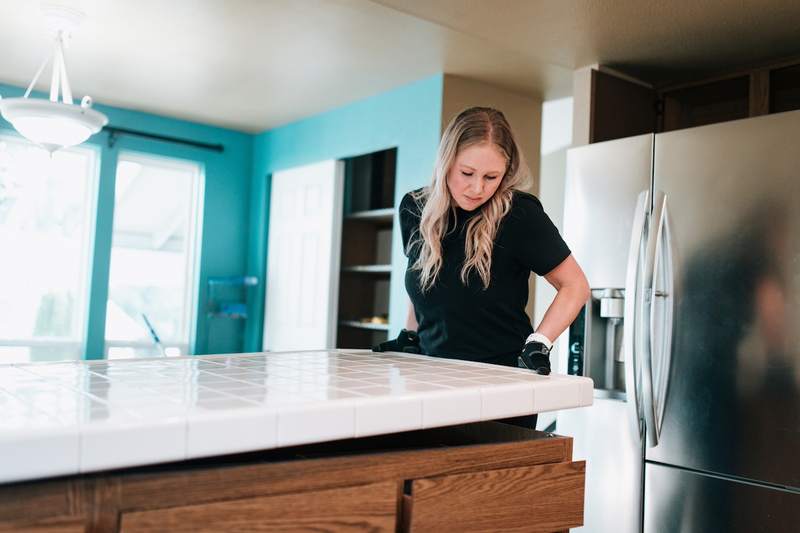Homeowners have an opportunity to build equity with each and every mortgage payment. When you have sufficient equity in your house, you might choose to tap into those funds. Second mortgages, which include home equity loans, offer a solution for getting your hands on the funds you need. While a home equity loan is a type of second mortgage, a second mortgage is not just a home equity loan.
It can be a little confusing – so we explain the second mortgage versus home equity loan in detail below.
What Is A Second Mortgage And How Does It Work?
A second mortgage is a type of loan that uses a home that already has an existing mortgage as collateral.
Second mortgage options include home equity loans and home equity lines of credit – also known as HELOCs. In either case, a second mortgage involves adding a new payment to your monthly budget.
What’s Your Goal?
Buy A Home
Discover mortgage options that fit your unique financial needs.

Refinance
Refinance your mortgage to have more money for what matters.
Tap Into Equity
Use your home’s equity and unlock cash to achieve your goals.
What Is A Home Equity Loan And How Does It Work?
A home equity loan is a type of fixed-rate loan. You’ll generally find loan terms ranging from 5 to 30 years (Rocket Mortgage® offers 10- and 20-year terms), with the funds disbursed as a single lump sum that you repay in monthly installments.
Homeowners with enough equity in their property often choose to tap into a home equity loan to cover one-time expenses. For example, a major home renovation is a typical use for a home equity loan.
Ready To Refinance?
Get matched with a lender that can help you reach your financial goals
Home Equity Loans Vs. Second Mortgages
Home equity loans are a type of second mortgage if there is already a lien on the home. A home equity loan can also be a primary mortgage if the home is owned free and clear. In addition to home equity loans, second mortgages can include home equity lines of credit.
Unlike home equity loans, which involve a single lump sum payment, HELOCs are a more flexible lending solution. Homeowners approved for a HELOC can tap into funds up to their credit limit during the draw period. Typically, HELOCs come with variable interest rates, which means your monthly payment can fluctuate. But you’ll have the ability to tap into the credit line on an as-needed basis. Rocket Mortgage doesn’t offer HELOCs at this time.
Is A Home Equity Loan A Second Mortgage?
A home equity loan acts as a second mortgage, if you currently have a mortgage. It allows you to leverage the equity in your home without modifying the loan terms or interest rate of your primary mortgage. Most lenders limit how much homeowners can borrow based on their loan-to-value ratio.
View Your Refinancing Options
Find a refinance lender that will work with your unique financial situation
Pros And Cons Of Second Mortgages
Every financial product has advantages and disadvantages, including second mortgages. Take a closer look at the pros and cons below.
Pros
Let’s start with the advantages of second mortgages.
More Payment Flexibility
A HELOC offers borrowers a flexible borrowing solution. With a credit limit, you can borrow funds only when you need them to avoid overborrowing. Borrowing less from your credit line can help you keep your monthly payments low.
But if you’re afraid of leaning on your line of credit too much, you could opt for the fixed payments tied to a home equity loan.
Available For Emergencies
If you have significant equity in your home, you can use those funds to cover any emergency life throws your way. In general, the closing time for a home equity loan or HELOC can be shorter than a cash-out refinancing. With that, you can get the funds you need faster – or instantly if you already have a line of credit or loan funds sitting in your savings account.
Less Costly To Obtain
Second mortgages use your home equity as collateral, which generally allows lenders to charge lower interest rates than other types of borrowing. For example, you’ll likely find significantly lower borrowing costs through a home equity loan when compared to a credit card or personal loan.
Cons
Now let’s explore the disadvantages.
Interest Rates Might Increase
If you choose to get a HELOC, the variable interest rate means you might see interest rates rise over time. A higher interest rate can make it significantly more expensive to repay the loan.
You can avoid the risk of interest rates rising by opting for a home equity loan with a fixed interest rate.
Might Spend More Than Anticipated
Easy access to a line of credit can make it tempting to spend more than you planned. If you are concerned that you might overspend, consider the lump sum option of a home equity loan.
Can Lose Your Home
A second mortgage uses your home as collateral. If you fall behind on your payments, you risk losing your home.
When To Consider A HELOC
If you want to tap into your home equity, here’s when a HELOC might make the most sense.
Buy An Additional Home
If you want to move to a new home, using your existing home equity could help you cover the upfront costs of purchasing another house. Since buying a home tends to come with a myriad of expenses, the flexibility of a HELOC might be ideal.
Keep in mind that you can choose to pay off both mortgages on your existing home when you sell the property.
Consolidate Credit Card Debt
Credit cards tend to have notoriously high interest rates attached. If you are stuck in credit card debt, a home equity line of credit can help you consolidate those balances into one payment with one interest rate. From there, you can continue to pay down your debt with a lower interest rate attached.
Cover Revolving Expenses
HELOCs are a revolving line of credit, which means your credit limit is replenished as you pay down your balance, during the draw period. If you have ongoing expenses that you cannot fund with your available cash, a HELOC could give you access to the resources you need.
Alternative To A Cash-Out Refinance
A cash-out refinance offers a way to get funds out of your home equity by replacing your existing mortgage with a larger balance. The catch is that obtaining a cash-out refinance may be more difficult to qualify for due to stricter requirements.
If you cannot qualify for a cash-out refinance or want access to the funds faster, a home equity loan could provide the funding solution you need.
When To Consider A Home Equity Loan
A home equity loan is another type of second mortgage that tends to make sense in many situations. While Rocket Mortgage doesn’t offer HELOCs, we do offer home equity loans.
Consolidate Debt
If you want to consolidate your existing debts into a single monthly payment with a lower interest rate attached, a home equity loan might work. The upfront lump sum can help you eliminate high-interest debt and the fixed monthly repayments are often easier to budget for.
Perform Home Improvements
Many homeowners use home equity loans to cover improvements and renovations to the property. The lump sum payment tends to make it easier to pay for these larger projects. But you’ll need to factor this new monthly payment into your budget.
Pay For Higher Education
If you want to cover higher education costs for a child, sometimes the interest rates attached to home equity loans are lower than student loan rates.
The downside to using home equity instead of federal student loans is that you’ll miss out on some of the borrower protections offered to student borrowers by the federal government. Make sure to explore all of the costs and benefits before using home equity to pay for your child’s higher education.
Second Mortgage And Home Equity Loan FAQs
You have questions about second mortgages and home equity loans. We have answers.
The Bottom Line: A Home Equity Loan Is A Second Mortgage
A home equity loan is a type of second mortgage. You can use your home equity to cover a range of expenses from home renovations to college costs and everything in between.

Sarah Sharkey
Sarah Sharkey is a personal finance writer who enjoys diving into the details to help readers make savvy financial decisions. She’s covered mortgages, money management, insurance, budgeting and more. She lives in Florida with her husband and dog. When she's not writing, she's outside exploring the coast. You can connect with her on LinkedIn.












